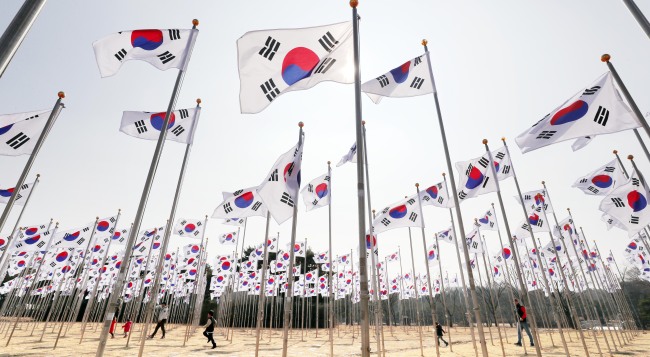Korea to pardon activists, minor offenders to mark independence movement day
By YonhapPublished : Feb. 26, 2019 - 11:47
The government on Tuesday said it will grant special pardons to 4,378 people, mostly those involved in political protests and convicted of crimes for the sake of their livelihoods, this week to mark the centennial of the March 1 Independence Movement.
The beneficiaries included 19 people that were found guilty of staging violent rallies against a government plan to build a naval base on the southern Jeju Island, the Ministry of Justice said in a release.
The pardons to be conducted Thursday will be offered to seven others who took part in the protests against Ssangyong Motor Co.'s restructuring plan that entailed a huge layoff of its workers.

About 50 others included the demonstrators who took part in protests against the deployment of a US anti-missile system, and a controversial 2015 agreement between the previous conservative government and Tokyo regarding Japan's wartime sexual enslavement of women.
It is the second time the Moon Jae-in government has granted amnesty to convicted offenders. The government announced pardons to some 6,400 people in late 2017, the president's first year in office.
The list, finalized at a Cabinet meeting Tuesday, did not include the names of some high-profile figures who had been anticipated as possible beneficiaries, such as former Prime Minister Han Myeong-sook and Han Sang-kyun, former leader of the Korean Confederation of Trade Unions, a hard-line umbrella labor group.
Lee Seok-ki, a former lawmaker of a now-defunct progressive party who's in prison for treason, was also not on the amnesty list, despite continued calls from the liberal bloc.
As it did with the pardons in 2017, the government stuck to keeping powerful business tycoons and public officials off the list, especially those imprisoned for corruption.
The government also excluded those convicted of drunk driving, given the strong hostile public sentiment toward DUI offenders after a series of fatal car crashes by drunk drivers led to the recent amendment of DUI-related laws. (Yonhap)



![[Exclusive] Korean military set to ban iPhones over 'security' concerns](http://res.heraldm.com/phpwas/restmb_idxmake.php?idx=644&simg=/content/image/2024/04/23/20240423050599_0.jpg&u=20240423183955)




![[Pressure points] Leggings in public: Fashion statement or social faux pas?](http://res.heraldm.com/phpwas/restmb_idxmake.php?idx=644&simg=/content/image/2024/04/23/20240423050669_0.jpg&u=)

![[Herald Interview] 'Amid aging population, Korea to invite more young professionals from overseas'](http://res.heraldm.com/phpwas/restmb_idxmake.php?idx=644&simg=/content/image/2024/04/24/20240424050844_0.jpg&u=20240424200058)









